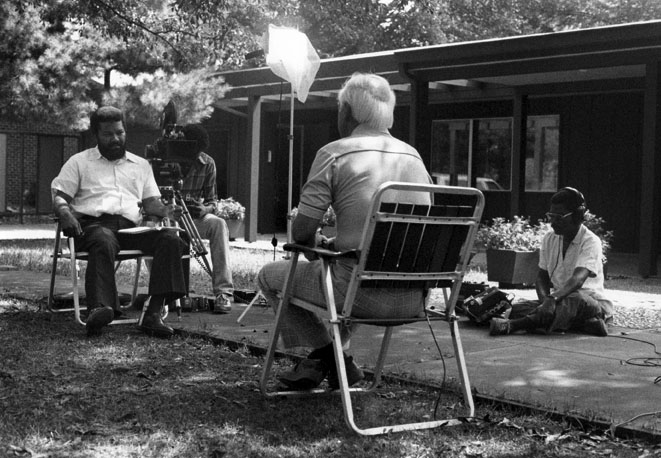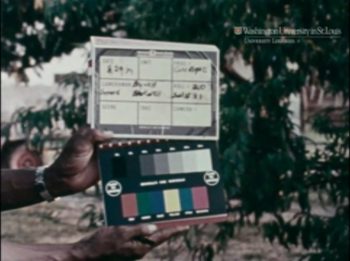NHPRC Grant Reveals Unseen Outtakes from Eyes on the Prize
Thanks to a National Historical Publications and Records Commission (NHPRC) Grant, the team at Washington University Libraries is nearing completion on the Eyes on the Prize Digitization and Reassembly Project. All of the interviews from Eyes on the Prize I will soon be available as an online digital resource with integrated video and text.
Henry Hampton established his Boston-based company Blackside, Inc. in 1968, and for thirty years he, and a talented group of producers, directors, cinematographers, writers, and researchers made award-winning documentary films.
In 1979 Hampton began making the first incarnation of what would become Eyes on the Prize. Originally titled, America, They Loved You Madly, work on this production halted when Hampton had creative differences with the original producers. The production was shelved but Hampton, who first had the idea to make the film while he participated in the Turnaround Tuesday March in Selma, Alabama on March 9, 1965, regrouped and raised the money to continue making the groundbreaking series that would become Eyes on the Prize.
Some of the interviews conducted in 1979 appeared in the final version of Eyes on the Prize, while others have remained unseen till now. Hampton’s original plan was to have civil rights activist and Georgia state senator Julian Bond be the onscreen narrator, and Hampton, Bond, and the film crew did travel to Money, Mississippi and shot some footage as part of the Emmett Till story. While Bond eventually became the off-screen narrator of the series the Till story opened the series and many of the interviews conducted in 1979 focused on the murder of the young man from Chicago.
Some of those interviews shot on location include the interview with journalist William B. Huie, who interviewed the killers of Emmett Till, a joint interview with civil rights activist Amzie Moore and J.W. Kellum, a defense lawyer in the Emmett Till murder trial, Rutha Mae Jackson and Willie Hill Jackson, a couple who had lived in Mississippi during the Till trial.
Other interviews conducted in 1979 include interviews with Mayor Marion Barry, Rosa Parks, William Coleman, Virginia Durr, and Governor George Wallace, to name just a few.


